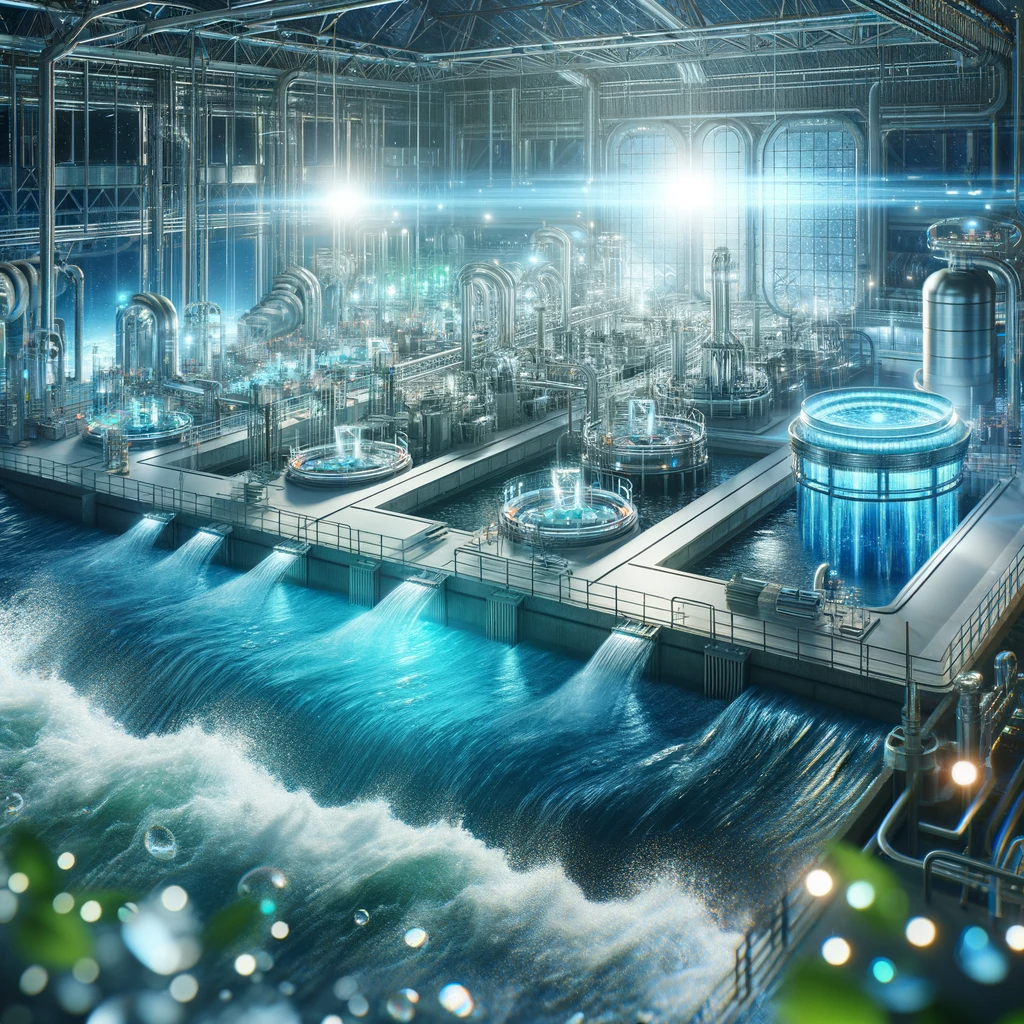As the world grapples with the growing challenges of water pollution and scarcity, the development of wastewater treatment technology has never been more critical. Across the globe, scientists and engineers are tirelessly working to advance the field, bringing us closer to cleaner, more sustainable water resources. In this article, we’ll explore the latest advancements in wastewater treatment technology, showcasing the innovative solutions that are revolutionizing the way we treat and conserve water.

The Imperative of Advancing Wastewater Treatment:
Wastewater treatment is a vital process that safeguards public health and preserves the environment. It ensures that water, once contaminated with various pollutants and contaminants, is purified before it is released back into the ecosystem or used for other purposes. Advancements in wastewater treatment technology are driven by several factors:
- Population Growth: As the global population continues to rise, the volume of wastewater generated also increases, necessitating more efficient treatment methods.
- Environmental Concerns: The impact of untreated or poorly treated wastewater on aquatic ecosystems and human health has spurred research and innovation in the field.
- Resource Scarcity: In regions facing water scarcity, maximizing the recovery of clean water from wastewater is essential.
- Energy Efficiency: With the need to reduce energy consumption and greenhouse gas emissions, wastewater treatment systems are becoming more energy-efficient.
Advancements in Wastewater Treatment Technology:
1. Membrane Technology:
Membrane-based treatment processes, such as reverse osmosis (RO) and ultrafiltration (UF), have gained prominence for their ability to remove even the tiniest contaminants from wastewater. These systems use semi-permeable membranes to separate solids and impurities from water.
Benefits:
- Exceptional removal of contaminants.
- Suitable for desalination and industrial wastewater treatment.
Limitations:
- Energy-intensive, especially in the case of RO.
2. Advanced Oxidation Processes (AOPs):
AOPs involve the use of powerful oxidants, such as ozone or UV light, to break down organic and inorganic pollutants in wastewater. These processes are effective in removing emerging contaminants and persistent pollutants.
Benefits:
- Elimination of a wide range of contaminants.
- Enhanced disinfection capabilities.
Limitations:
- May require careful management of chemical use.
3. Forward Osmosis (FO):
Forward osmosis is an emerging technology that uses a draw solution to draw fresh water through a semi-permeable membrane. It is energy-efficient and is gaining attention for desalination and concentration processes.
Benefits:
- Lower energy requirements compared to RO.
- Sustainable and eco-friendly.
Limitations:
- Limited commercialization.
4. Electrochemical Treatment:
Electrochemical treatment systems use electrodes to induce chemical reactions in wastewater. These processes are effective in removing heavy metals and organic contaminants.
Benefits:
- High removal efficiency for specific pollutants.
- Lower chemical usage.
Limitations:
- Limited application to specific contaminants.
5. Nanotechnology:
Nanotechnology involves the use of nanoparticles or nanomaterials to treat wastewater. It offers a versatile approach to removing contaminants and enhancing water quality.
Benefits:
- Efficient removal of contaminants.
- Potential for sustainable water treatment.
Limitations:
- Regulatory concerns regarding the use of nanoparticles.
Sustainable and Eco-Friendly Solutions
Many of these advancements in wastewater treatment technology are designed with sustainability in mind. They focus on reducing energy consumption, minimizing chemical usage, and maximizing water recovery. Sustainable wastewater treatment practices are essential for addressing environmental concerns and ensuring the long-term availability of clean water resources.
The Road Ahead
The future of wastewater treatment holds exciting possibilities. Researchers continue to explore innovative solutions, such as using artificial intelligence (AI) and machine learning to optimize treatment processes, as well as integrating decentralized treatment systems for greater efficiency. Additionally, the concept of wastewater-to-resource (W2R) is gaining momentum, where treated wastewater is transformed into valuable resources like energy and nutrients.
Conclusion
Advancements in wastewater treatment technology are driving us toward a cleaner and more sustainable future. These innovations are not only improving the quality of treated water but also contributing to the conservation of vital resources. By staying at the forefront of these developments and embracing eco-friendly solutions, we can address the pressing challenges of water pollution and scarcity, ensuring that clean water remains accessible for generations to come.
